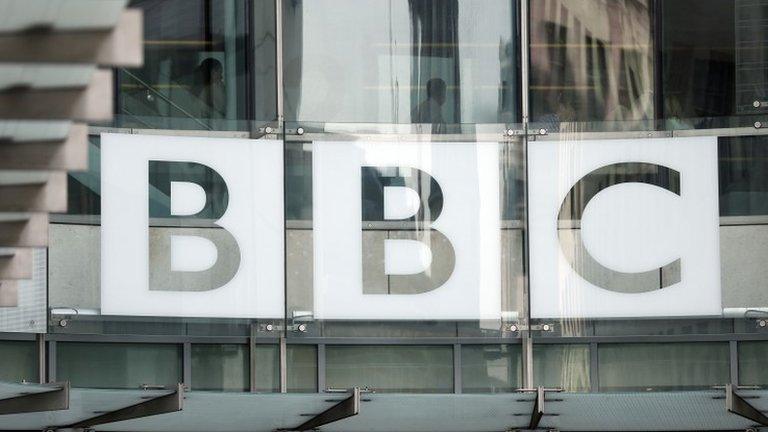TV listings: The battle over your programme guide
- Published
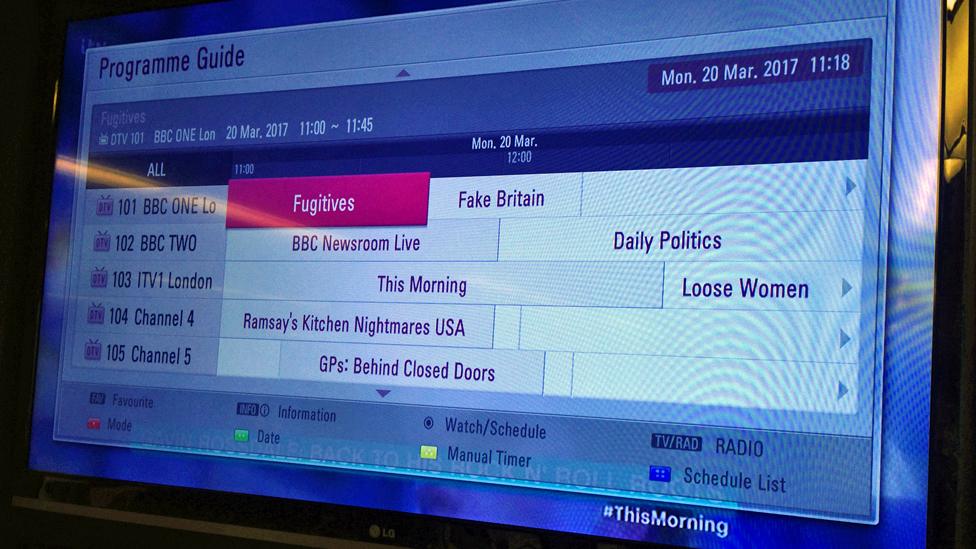
Viewers may have trouble finding shows they love if public service channels are not guaranteed top positions on TV guides, major broadcasters have warned.
Peers are currently debating a change to the law which says channels including BBC One, ITV and Channel 4 must appear top of on-screen listings.
Major broadcasters argue public service channels should be protected as people adopt more personalised viewing habits.
But Sky says the networks are acting in "blatant self-interest".
The Department for Media, Culture and Sport says that with users "increasingly able to personalise their own homepage for on-demand services, it would not be in their interests to legislate against this progress".
James Purnell, the BBC's director of radio and education, wrote in the Daily Telegraph, external that "sensible action" needed to be taken, or "we're at serious risk of losing something very special about our British culture".
The House of Lords is debating whether there should be an amendment to the Digital Economy Bill, to protect the place of public service broadcasters (PSBs).
Here's what the main players say:
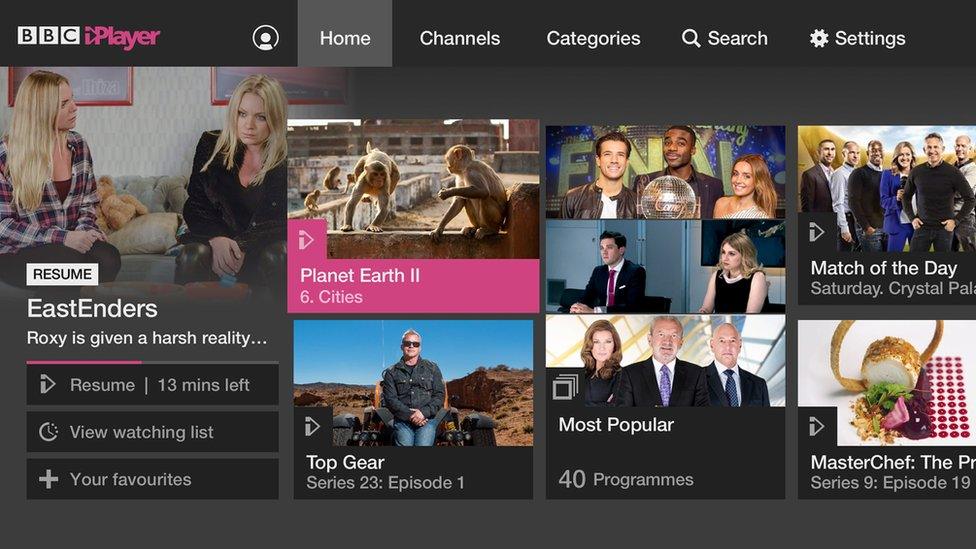
The BBC argues that new set-top boxes offer limited options on their homepages - which means there's no space for on-demand services from public service broadcasters like iPlayer, ITV Hub and All4.
Mr Purnell said: "Some pay-TV platforms are already making 'free to air' services harder to find. There's no point being top of the programme guide if it's difficult to find the guide.
"This isn't about forcing people to watch public service programmes, or stopping viewers watching American shows we love. It's about making sure you can find them easily."
He also points out that in channel listings on Sky, the BBC's children's channels, CBeebies and CBBC - which he describes as "safe, trusted, educational, British programmes without adverts" - are below a dozen US cartoon networks.
ITV says the prominence of PSBs on electronic programme guides (EPGs) "needs to be preserved". It said: "In a changing environment, people are watching television differently and viewers need to be able to continue to easily find PSBs channels."
Channel 4 agrees, adding: "It's important that the regulation of broadcasting keeps pace with the changing ways that viewers are now watching television."
Scotland's STV says it "fully supports this amendment to guarantee our consumers can readily access our regionally differentiated content on air and via the STV Player".
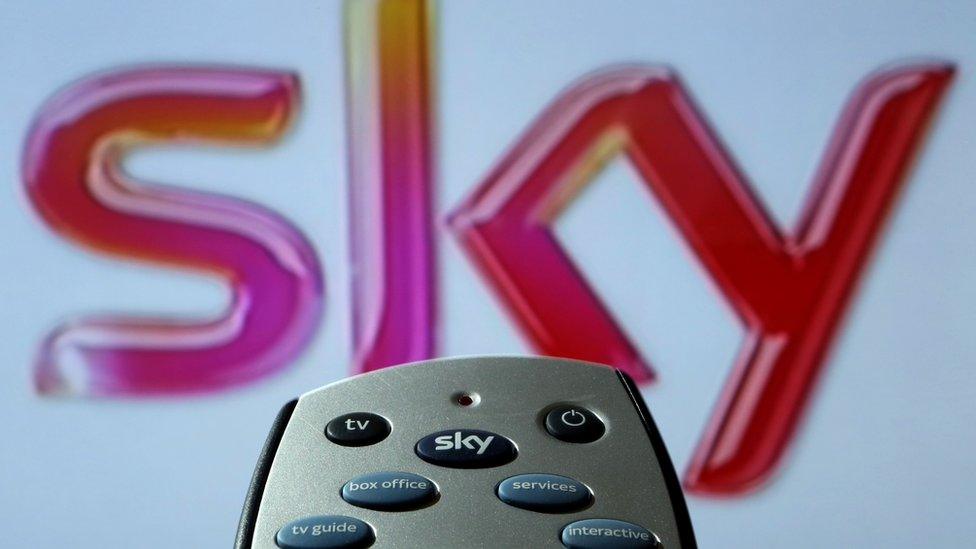
However Sky has described the BBC's arguments as "disingenuous" because the corporation denies Sky customers access to BBC on-demand content "in ways which are convenient to viewers".
The Sky statement continued: "On Sky Q, for example, they will not allow us to promote their shows on our home page. And on the SkyGo and Sky Q mobile app, the BBC has refused to grant Sky the rights to show any content whatsoever.
"The BBC needs to get with the times and allow consumers to view content they have already paid for alongside the content of other PSBs and commercial broadcasters."
Virgin says BBC content is already prominent on its platform, the EPG is accessible via a button on its remote, and BBC on-demand content is "easily found".
The government argues that viewers are getting more choice over what appears on their own homepages - and protecting PSBs would be anti-competitive.

Follow us on Facebook, external, on Twitter @BBCNewsEnts, external, or on Instagram at bbcnewsents, external. If you have a story suggestion email entertainment.news@bbc.co.uk, external.
- Published11 July 2016
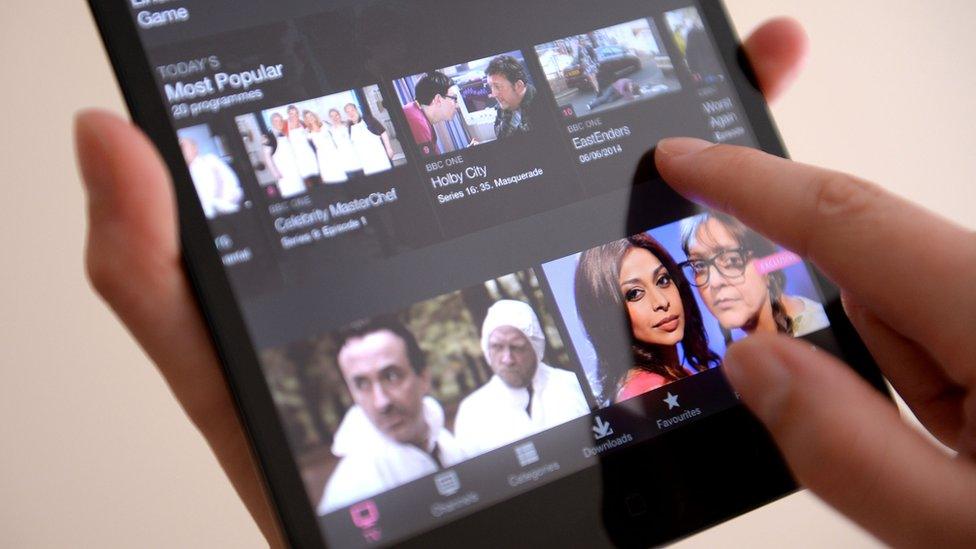
- Published27 July 2015
